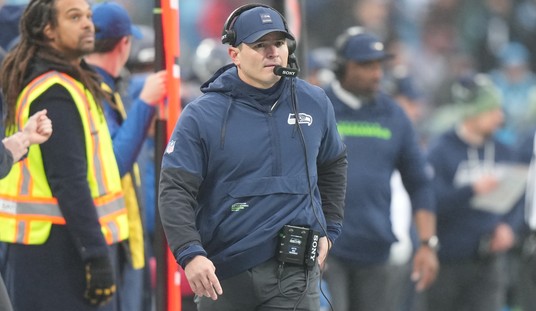I was in the room in 1985 during the US/Iran/Israel negotiations that eventually led to Iran-Contra, and while I had no authority to make commitments for the American government, I had plenty of opportunity to ask questions and talk at length with the others. It was not a happy experience, and it was worsened by the knowledge that, while we spoke, a top American CIA officer was being tortured to death by the Iranians.
Hostage negotiations between a Western democracy and a hostile totalitarian regime lopsidedly favor the evil regime. Its leaders do not care about human life, while ours are often driven by concern over the fate of their citizens. You can see that in the case of Israel, which releases hundreds of terrorists for a single Israeli hostage, and you can see it in those US/Iran/Israel negotiations back in ’85: President Reagan was very passionate about saving our hostages, as Israeli prime ministers, including Begin and Netanyahu, have been about saving theirs.
Our leaders have long claimed that we don’t pay for the release of hostages, nor do we negotiate with terrorists. False on both counts. Indeed, I don’t know of any democratic country that doesn’t do both. To stay with Iran, President Carter negotiated a deal for the release of the diplomats from our Tehran Embassy–the deal entailed the release of Iranian funds blocked in US banks–and Reagan’s several deals with the Iranians sent weapons to the mullahs. More recently, Obama’s negotiations with Iran have also included American hostages in Iranian jails, as we know from the fact that he raised that question with Iranian President Rouhani during their phone conversation last September.
The negotiations are invariably conducted through several different “back channels,” from senior diplomats to trusted advisers, and on to American and foreign “fixers” looking for a payday. If you read the final report of the Iran-Contra special prosecutor, you’ll find such entrepreneurial sorts busily at work. The Obama administration’s talks fit the model. We have sent some senior State Department officials to negotiate with the Iranians in Doha, Qatar (those talks were officially part of the nuclear talks, but undoubtedly included hostages as well), and CIA officers have also been engaged in efforts to gain the release of some of their people who were captured inside Iran. There are many published stories about a possible role by Valerie Jarrett, Obama’s closest adviser. The White House has denied it, but several very high-ranking government officials in the region believe it. As for more informal back channels, people such as Farhad Azima, who served as an intermediary to Iran for the Clinton administration, may well be playing a similar role today. We know that Obama likes such back channels; already during the 2008 campaign, he dispatched William Miller, a retired ambassador and former chief of staff at the Senate Intelligence Committee, to Tehran to assure them that Obama’s election would be a watershed in relations, and to discuss how to achieve it.
It’s an ugly business, and it’s easy to say we shouldn’t do it at all. But that’s easier said than done. Elected leaders find it very hard to tell the parents, children or spouses of hostages that they’re going to abandon their loved ones. Not even Menachem Begin, a famously tough man, could do that when the mother of an Israeli hostage crawled across the floor, seized his feet, and implored, “Prime Minister, save my son.” Nor could Ronald Reagan walk away from CIA officer William Buckley, especially after the Iranians ghoulishly sent audio tapes with Buckley screaming in agony.
One of the lessons I took away from my experience in 1985 is that we will always do badly in such negotiations, and that this is just one more reason for us to combat such regimes as effectively as we possibly can. Every president since Jimmy Carter has tried to make deals with Iran, but none of them has devised a strategy to bring down that evil dictatorship. So we keep being jerked around, always telling ourselves that a happy outcome is just hours away.
It isn’t. With Iran, or the Taliban, or the Haqqani network that held Bowe Bergdahl, or Cuba, which holds Alan Gross, negotiated outcomes will be bad ones. The only way to get a happy outcome is to decisively defeat them.
The Washington Post once wrote that the only way to stop the Iranian nuclear program is to achieve regime change in Tehran. In like manner, the only way to end hostage-taking is to bring down the regimes and groups that do it.









Join the conversation as a VIP Member